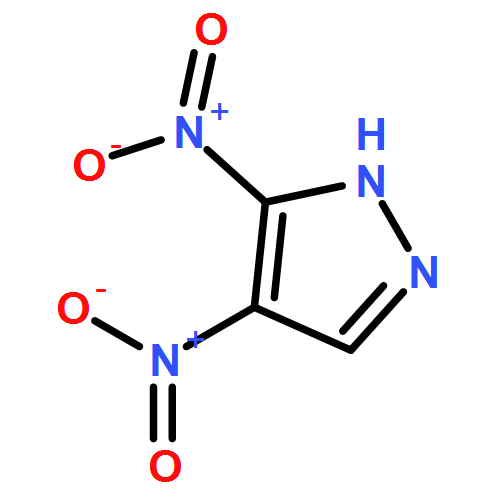Co-reporter: Jonathan C. Bennion, Andrew McBain, Steven F. Son, and Adam J. Matzger
pp: 2545-2549
Publication Date(Web):April 15, 2015
DOI: 10.1021/acs.cgd.5b00336
A series of three energetic cocrystals containing 5,5′-dinitro-2H,2H′-3,3′-bi-1,2,4-triazole (DNBT) were obtained. These incorporate a class of energetic materials that has seen significant synthetic work, the azole family (tetrazoles, triazole, pyrazole, etc.), and yet have struggled to see broad application. A cocrystal was obtained with the triazole 5-amino-3-nitro-1H-1,2,4-triazole (ANTA) in a stoichiometry of 2:1 (ANTA:DNBT). Two cocrystals were obtained with the pyrazoles 1H,4H-3,6-dinitropyrazolo[4,3-c]pyrazole (DNPP) and 3,4-dinitropyrazole (3,4-DNP) in ratios of 1:1 (DNPP:DNBT) and 2:1 (3,4-DNP:DNBT). All three cocrystals, 2:1 ANTA/DNBT (1), 1:1 DNPP/DNBT (2), and 2:1 3,4-DNP/DNBT (3), have high densities (>1.800 g/cm3) and high predicted detonation velocities (>8000 m/s). In small-scale impact drop tests, cocrystals 1 and 2 were both found to be insensitive, whereas cocrystal 3 possesses sensitivity between that of its two pure components 3,4-DNP and DNBT. The hydrogen bonding motif of the three components with DNBT is preserved among all three cocrystals, and this observation suggests a generally useful motif to be employed in the development of other energetic–energetic cocrystals. These cocrystals represent an area of energetic materials that has yet to be explored for cocrystalline materials.
